Victorian Derby Market Hall celebrates 150 years
- Published
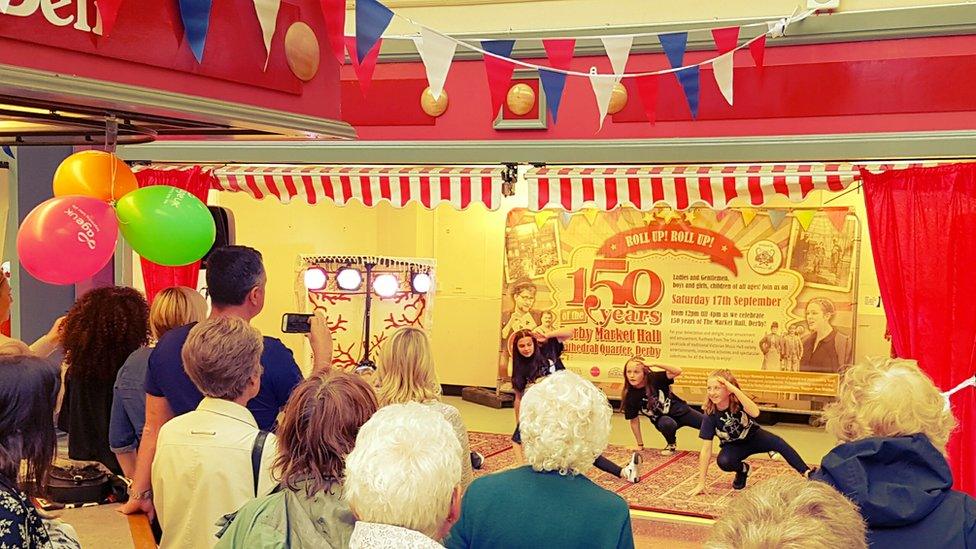
Derby Market Hall celebrated 150 years of trading with Victorian-themed celebrations
The 150th birthday of the UK's "first purpose-built undercover market" has been celebrated.
Traders at Derby's Market Hall, which opened in 1866, donned Victorian dress to mark the "important milestone" in its history.
The Grade II listed landmark was designed by engineer Rowland Mason Ordish, from Melbourne, Derbyshire, and cost £29,000 to build.
In 1989, the 19th Century building underwent a multi-million pound revamp.
For more stories on Victorian England visit our Pinterest board, external
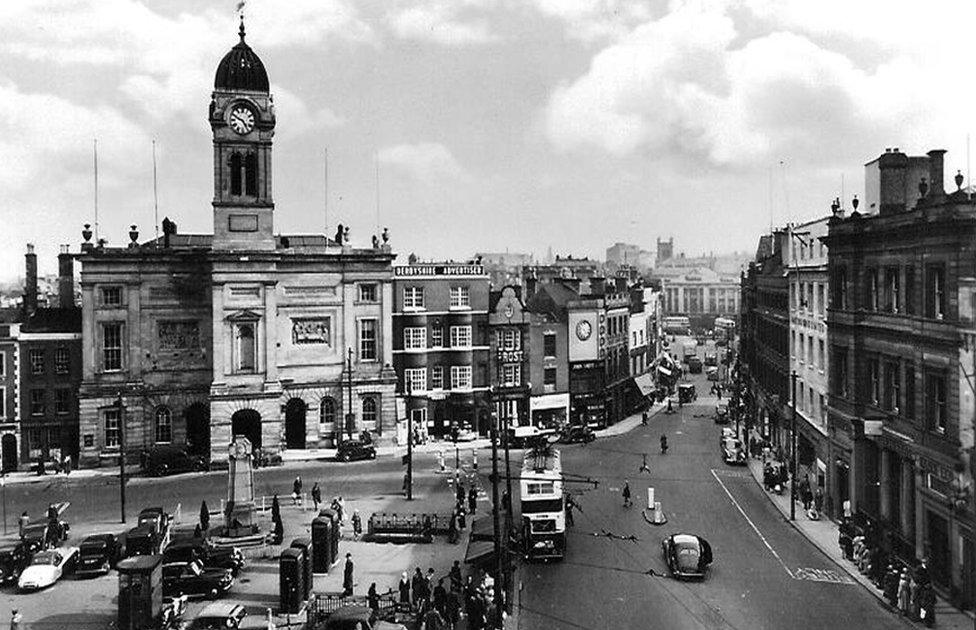
Derby Market Hall opened in 1866 at a cost of £29,000
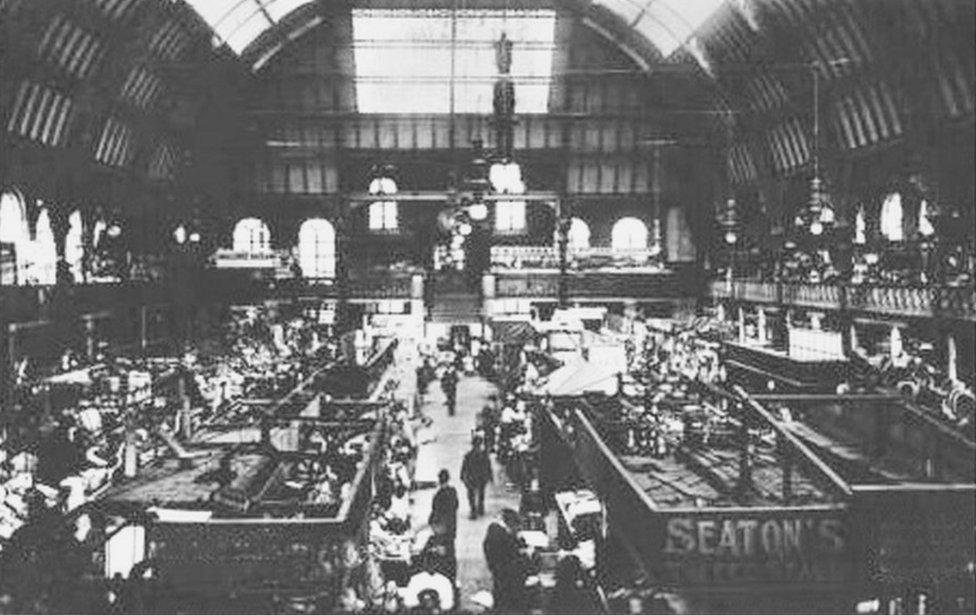
The roof of the market hall has been compared to the single spanned roof of St Pancras Station
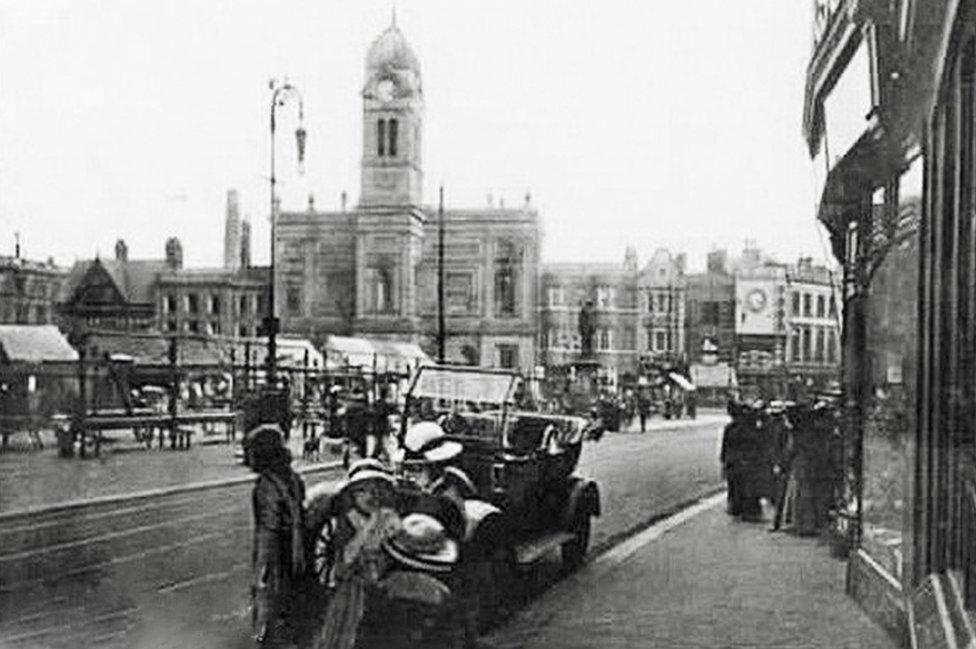
The market hall has been an "integral part" of Derby for 150 years
Linda Aston, chair of the Derby Market Hall Traders Association, is the third generation of her family to run a business at the market.
"Back in 1866, the opening of the Market Hall drew in huge crowds who marvelled at the fact that this was the UK's first purpose-built undercover market," she said.
"Derby turned out in its finery for the preview and the official opening... and there were widespread celebrations to mark the special event."
Councillor Martin Rawson, of Derby City Council, said the market hall has been an "integral part" of Derby for 150 years and hopes it continues for years to come.

History Discovered
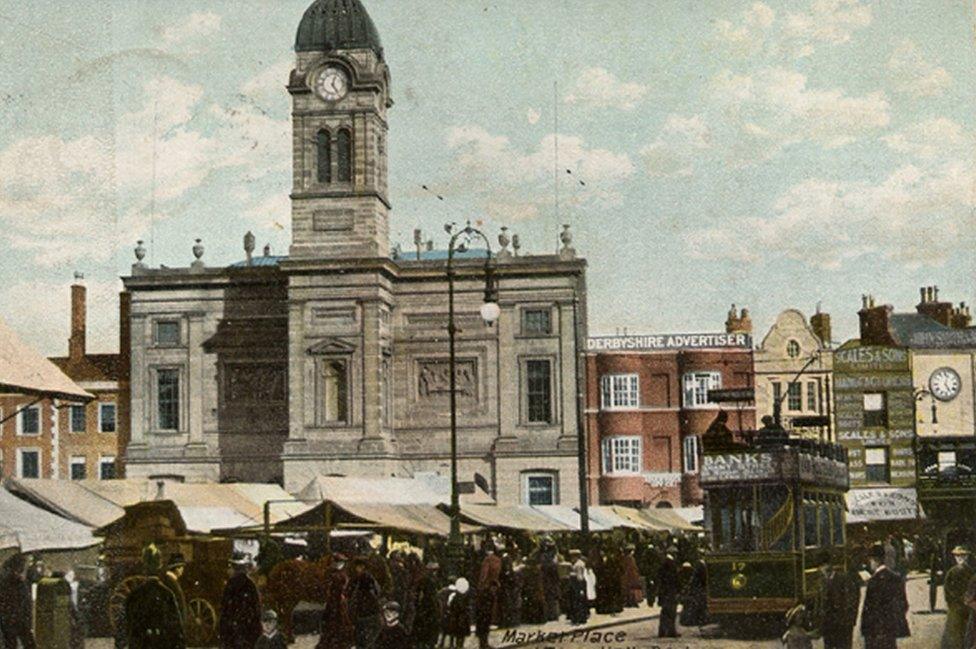
In 1989, workmen discovered unique traces of Derby's history during the renovation work.
A well six feet and 30 feet deep was uncovered, which may have served buildings that stood on the site prior to 1864.
Tunnels were discovered running between the Lock Up Yard and the Guildhall.
Experts believe they were probably used to move prisoners between the two areas.

- Published30 July 2010